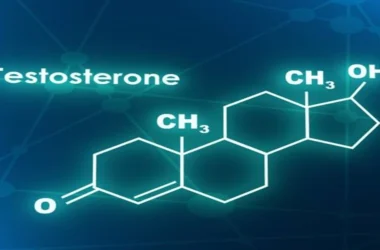[ez-toc]
Cancer is a formidable adversary, affecting millions of lives worldwide. In the realm of cancer prevention and early detection, it’s crucial to recognize that men and women may face different challenges.
Understanding these gender-specific nuances is pivotal for developing effective strategies to mitigate risks and enhance early detection.
The Unique Landscape: Men vs. Women
Understanding Gender-Specific Vulnerabilities
Each gender harbors unique susceptibilities to certain types of cancers. For instance, breast cancer is predominantly associated with women, while prostate cancer is a primary concern for men.
Recognizing and addressing these gender-specific vulnerabilities is fundamental to tailoring preventive measures.
Lifestyle and Risk Factors
Men’s Health: Navigating Risk Factors
Men, for instance, may need to be vigilant about lifestyle factors that contribute to prostate cancer risk. A diet rich in antioxidants, regular exercise, and routine screenings are essential components of a comprehensive prevention plan.
Women’s Health: Unraveling Breast Cancer Risk
Conversely, women should pay attention to factors influencing breast cancer risk. Regular mammograms, self-examinations, and lifestyle modifications such as maintaining a healthy weight can significantly contribute to early detection and prevention.
Video[8 ways to reduce your cancer risk]
Credit: MD Anderson Cancer Center
Screening Disparities and Awareness
Men’s Screening Gap
In the realm of early detection, men sometimes lag behind in seeking routine screenings. Encouraging awareness about the importance of regular check-ups and promoting a proactive approach to health can bridge this gap.
Empowering Women Through Knowledge
Women, on the other hand, may benefit from increased awareness regarding the significance of early detection methods like mammograms. Education campaigns can empower women to take charge of their health through proactive screening practices.
Also Read: Numbness, Muscle Pain, and Other Rheumatoid arthritis Symptoms and Treatment Options
The Role of Genetics in Cancer Susceptibility
Genetic Predisposition in Men
Understanding the genetic component of cancer susceptibility is paramount. For men, genetic factors can significantly contribute to prostate cancer risk. Genetic counseling and testing can provide valuable insights, enabling individuals to make informed decisions about their health.
Genetic Influences in Women’s Health
Likewise, women may have a genetic predisposition to breast and ovarian cancers. Genetic testing allows for personalized risk assessment, facilitating early intervention and risk reduction strategies.
Lifestyle Modifications: A Unified Approach
Diet and Exercise: A Common Ground
While there are gender-specific considerations, adopting a healthy lifestyle is a universal principle for cancer prevention. Emphasizing the importance of a balanced diet, regular exercise, and avoiding tobacco and excessive alcohol consumption benefits both men and women.
Regular Check-ups: The Cornerstone of Prevention
Regardless of gender, regular health check-ups are pivotal. These routine examinations provide an opportunity for early detection and intervention, offering a proactive stance against the development of cancer.
The Road Ahead: Awareness and Collaboration
Community Engagement
Building awareness within communities is vital. Collaborative efforts between healthcare professionals, community organizations, and individuals can create a supportive environment for preventive measures and early detection.
Educational Initiatives
Educational initiatives, both online and offline, play a crucial role in disseminating information. By fostering an understanding of gender-specific cancer risks, we empower individuals to make informed decisions about their health.
Conclusion
In the journey towards preventing and detecting cancer, understanding the nuances specific to men and women is indispensable.
By fostering awareness, promoting lifestyle modifications, and embracing early detection methods, we can collectively work towards a future where the impact of cancer is significantly reduced.
Remember, knowledge is power, and in the face of cancer, it becomes a potent tool for prevention and early intervention.



